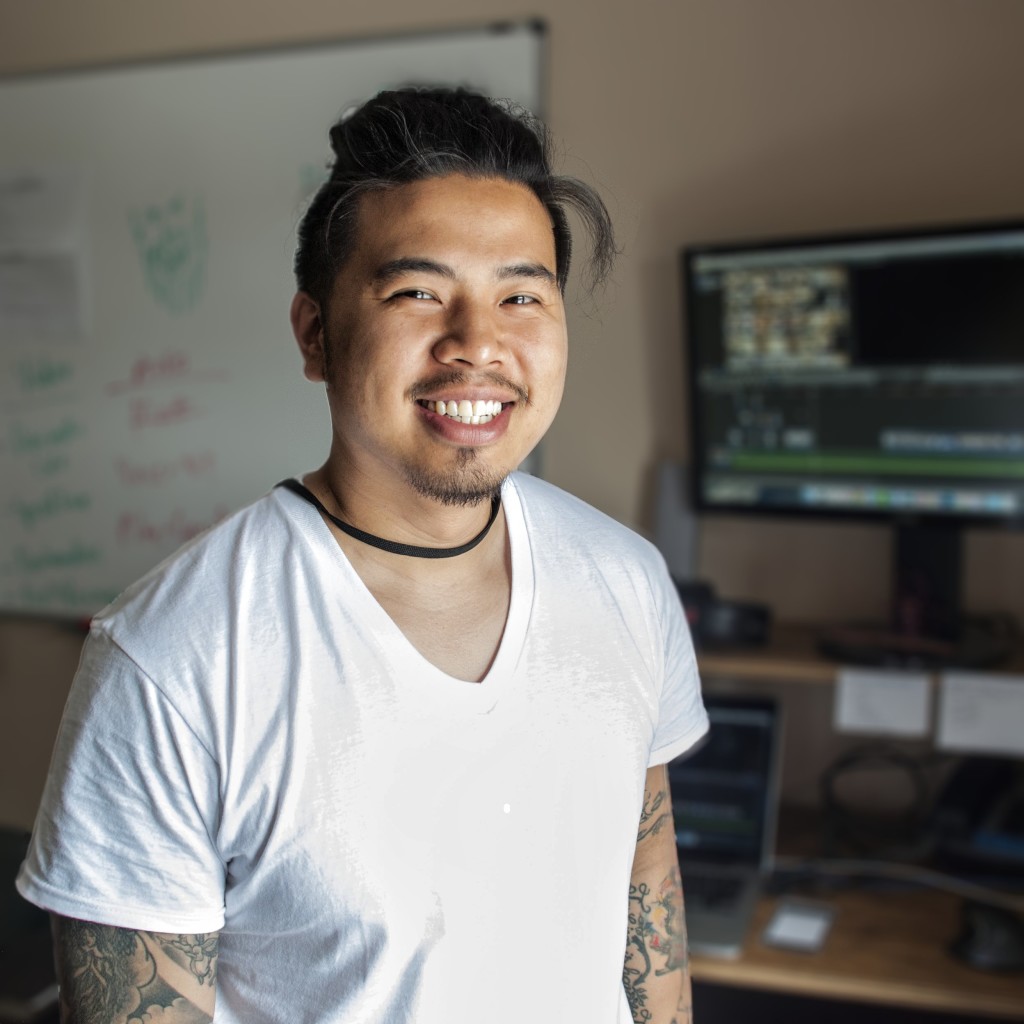I grew up in West Baltimore – in Sandtown. There was my mom, my younger brother and his dad in the house. But, I didn’t know he was my step-father; I thought he was my dad until I was 12 when we moved out to Park Heights. It was hard when I found out he wasn’t my biological father, but I realized eventually that he was my “dad”.
My relationship with my mom, even in the middle of my mess, was good. She would always try to find a way to help me get better.
I started trying drugs when I was 8 or 9 – marijuana. But, it wasn’t an every-day thing until I was 15 or 16 because of limited access – by then I had a job and associates to get it from. I started using cocaine at 17.
I put myself out of school when I was in 8th grade [by acting out]. My mom wouldn’t let me be in the house unless I was learning, so the principal that expelled me from Greenspring Middle helped me get into an alternative school. Just two weeks from completing my GED, I got in an altercation and got myself put out again.
I left home when I was 19. From 17 on, I was back and forth with girlfriends and families in a couple places. I met my daughter’s mother and she had my daughter. Her mom didn’t want anything to do with me because I didn’t have a high school diploma or college. But, I always kept a job.
I could always go home, but I chose to live on the streets. Whenever I would call my mom, she would say I could come home. But I told her I was alright, and I was under the illusion that I was taking care of myself.
I first came to HUM in 1998, when I was 28 years old. I only stayed for a week. I tried other recovery programs over the years, including another time back at HUM. I spent time in jail – for things I did and for things I did not do. I had jobs on and off – which also provided access to substances.
On Memorial Day 2012, the love of my life was taken away from me. She was murdered, and I lost my mind. I tried everything not to feel what I was feeling. Marijuana didn’t do it. Coke didn’t do it. As I was on my way to go buy some coke, an associate asked how I was doing. I said that I was trying to find something to numb the pain. He gave me a gram of raw dope. I didn’t like the way it made me feel, but it took away the pain. What I didn’t realize was that my using heroin to take away the pain was causing me even more pain. I came home one day and the locks were changed.
Eventually, in March 2016 I found my way back to HUM. I didn’t talk to other people when I came here; just the people who came in with me. We made a pact to be here for the year. Since I have been here, I’ve been dealing with my anger and changing my heart.
When the euphoria of getting high was gone, I became a very, very, very angry individual. I was angry at myself, angry at the world, and angry at the dude that took my wife from me. In my second week here, I was going to leave, but my Father [God] sent my Treatment Coordinator to come talk to me. I told him, “It’s my birthday and I don’t want to feel what I feel. The only way that I know how to deal with it is to get high.” He suggested I talk to the Director of Spiritual Life about my anger. I was looking for the quick fix – I thought he would give me a verse or a book to go read, but it wasn’t that simple. He gave me a bunch of reflective assignments. Every time I was in the recovery process, I thought it was about changing my thinking. But for me, it wasn’t about changing my thinking, but about changing my heart. And everything else will follow.
Now, I’m staying at HUM; I’m working on getting my high school diploma and I’m responsible for the housekeeping in three buildings. I’m working on other things, like vulnerability. I don’t have a problem being vulnerable to the Father because I know he is not going to hurt me and has my best interests; my problem is being vulnerable with people. Learn to distinguish which people who have your best interest at heart. The people at HUM have my best interest at heart. But I resist it; I don’t want you to know that I have any vulnerability in me. I don’t want you to know that I have the fillling of a Twinkie in me. Sometimes there’s a time to be angry, but I just don’t want to be angry anymore.
I don’t know what’s next for me; I just go where my Father tells me to go and do what He tells me to do.
Here’s a WBAL news segment that featured Anthony early in his time at HUM:
